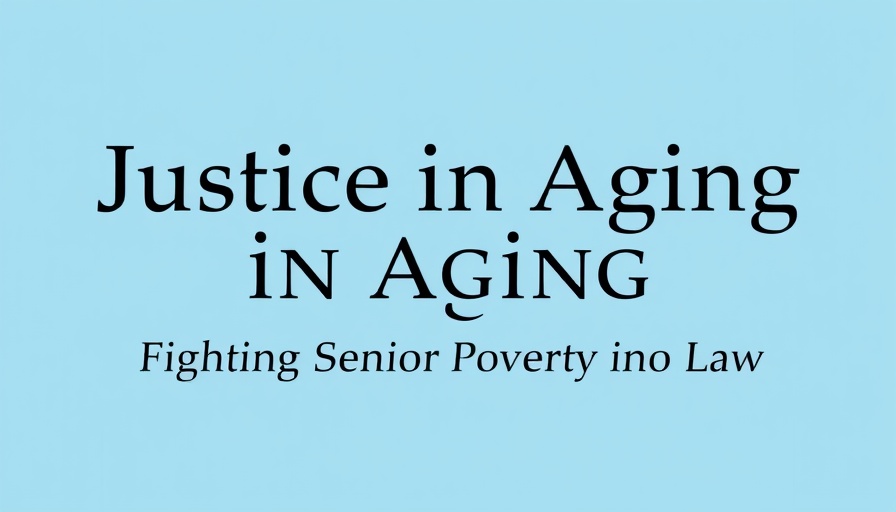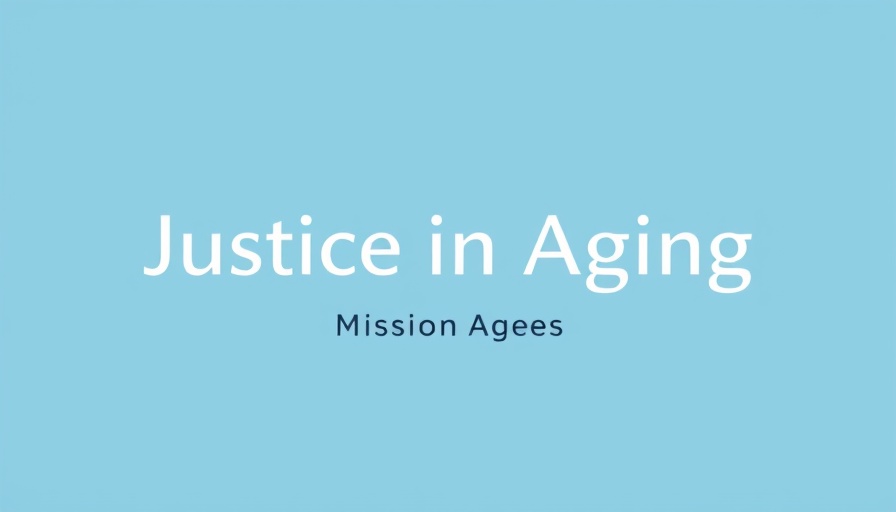
The Vital Role of Support Programs for Older Americans
As the population ages, many older Americans face significant daily challenges in meeting their most basic needs. This can include access to health care, stable housing, sufficient income, and nutritious food. Fortunately, a combination of federal programs, including Medicare and Medicaid, plays a crucial role in supporting these individuals as they navigate the complexities of aging.
Understanding Health Care Needs in Aging
Everyone hopes to age with dignity and health. However, the stark reality for many older adults is that Medicare, while it provides essential coverage for hospital care, outpatient services, and prescription drugs, fails to extend its reach into critical areas such as long-term care. This is particularly challenging for those on fixed incomes who struggle to pay out-of-pocket health expenses that can soar into the thousands.
For instance, a significant number of Medicare enrollees find themselves spending around $7,000 annually on health care, which equates to roughly 14% of their total household income. Understanding these gaps emphasizes the necessity of supplemental insurance and highlights the importance of programs like Medicaid that can step in to offer that additional support.
Navigating the Maze of Medicare Parts
Medicare is divided into different parts, each serving a distinct purpose: Part A covers hospitalization, Part B covers outpatient services, Part C groups together parts A and B through private plans, and Part D provides prescription drug coverage. This system, while comprehensive in theory, can be confusing and lead to inadequate coverage for services that directly impact the quality of life in older adults.
The Sketch of Housing and Food Insecurity
Aside from health, the struggle for older adults continues when they face housing insecurity. Many are forced to make untenable decisions between essential needs such as paying rent and affording medications or groceries. With the average SSI income being insufficient for basic living costs, programs like the Supplemental Nutrition Assistance Program (SNAP) and various rental assistance initiatives are vital lifelines.
Unfortunately, without continued investment and awareness around these issues, many older Americans risk falling into poverty and homelessness. This is increasingly relevant as housing costs rise and the availability of affordable housing dwindles.
Societal Benefits of Supporting Older Adults
Supporting older Americans is not just about individual health; it impacts the well-being of our entire society. When older individuals thrive, they contribute more significantly to their communities, maintain family structures, and even provide care for younger members. A robust support system promotes not only individual welfare but collective societal health.
The Future of Support for Aging Americans
Looking forward, there is a pressing need for policymakers to enhance and expand current programs that address these critical needs. With the projected increase in the older population, ensuring robust health care, housing, and food security is paramount. This calls for innovative solutions and reforms that will adapt to changing demographics and economic realities.
Actionable Insights:
For seniors navigating the complexities of these systems, staying informed about available resources is essential. Regularly reviewing benefits, understanding eligibility, and advocating for needed changes can empower older adults to take charge of their well-being.
Ultimately, the combination of health care, income support, housing, and food services create a safety net that allows older Americans to live with dignity. As the population ages, our communities must rally around these issues to ensure that every senior can thrive in their golden years.
 Add Row
Add Row  Add
Add 




 Add Row
Add Row  Add
Add 

Write A Comment